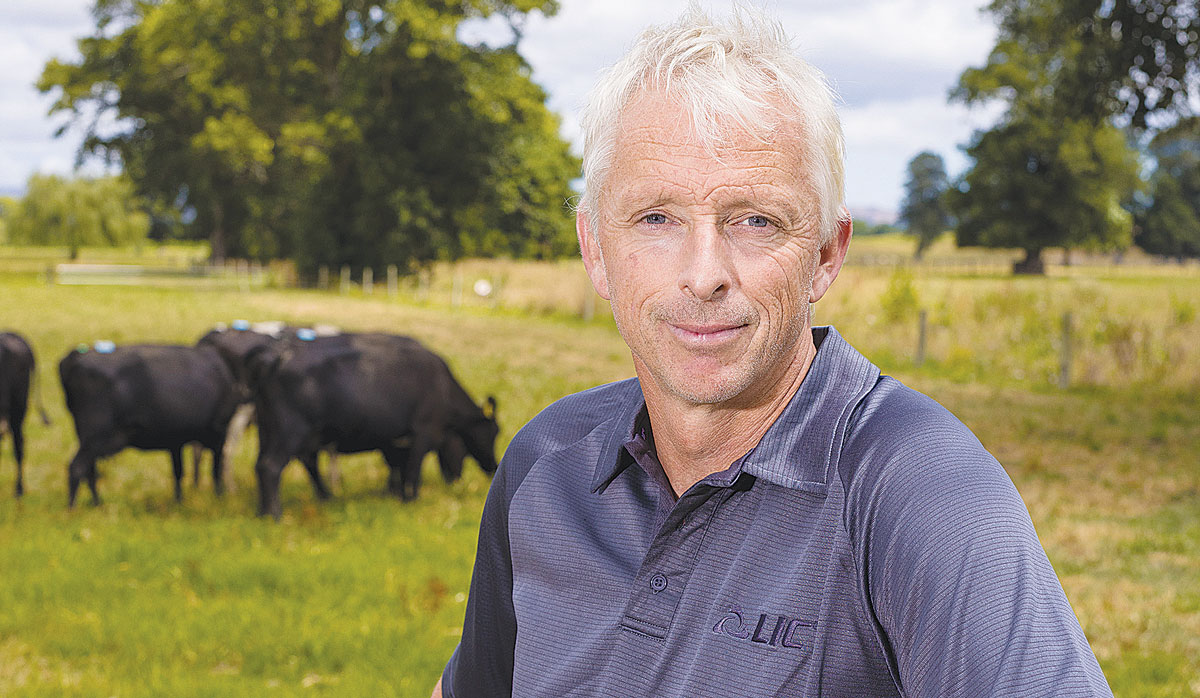2024/25 Dairy Statistics: NZ dairy farmers boost production with fewer cows
According to the New Zealand Dairy Statistics 2024/25 report, New Zealand dairy farmers are achieving more with fewer cows.
New research has confirmed bulls' genetics play a role in how much methane they emit, highlighting the potential for farmers to breed low methane-emitting cows in the future.
The news comes following the first year of a research programme run by major New Zealand artificial breeding companies LIC and CRV.
The research, funded by the New Zealand Agricultural Greenhouse Gas Research Centre (NZAGRC), measures methane emissions from the burps of young bulls set to father the next generation of New Zealand's dairy cows.
Results from year one, where the feed intake and methane emissions from 281 bulls were measured, found there is genetic variation in the amount of methane emitted after accounting for the feed eaten by the bulls, with the lowest emitting around 15-20% less methane than the average.
LIC chief scientist Richard Spelman says these results are a big step forward for the research.
"The amount of methane a bull or cow produces directly relates to the amount of food it eats - generally speaking the more an animal eats, the more methane it will emit.
"But after accounting for differences in the bulls' feed intake, we're still seeing genetic variation in their methane emissions, proving genetics do play a role. We have a sliding scale from bulls that are low-methane emitters (less than 18g of methane/kg of dry matter eaten) to bulls that are on the higher end (more than 28g of methane/kg of drymatter eaten). This is the variation we [wanted] to see and we're excited to use it to our advantage."
Although the research is in the early stages, Spelman says the results show promise to help farmers meet environmental challenges.
"This methane research is a long-term project bu t it has the potential to make a real difference to farmers in the future by providing another tool to reduce their farm emissions.
"New Zealand farmers are striving to meet the challenge of being profitable and sustainable, and research like this will help ensure reducing a farm's emissions doesn't have to come at the cost of reducing its milk production."
CRV grass-fed genetics manager Peter van Elzakker says it's pleasing to see that the first-year results of the trial align with the company's methane trial work with Wageningen University in the Netherlands.
“The findings in New Zealand are a significant step forward in our work to develop tools to help New Zealand dairy farmers reduce their emissions. They give all of us even more confidence genetics can be part of the solution.”
Harry Clark, director of the NZAGRC, is equally pleased with these early results.
“Breeding represents a long-term and cumulative way that farmers can reduce their greenhouse gas emissions. Low-methane selection is now available to sheep breeders and the signs are positive that we might be able to deliver the same for the dairy sector,” he says.
Next Step
Richard Spelman, LIC, says the next step in the research is to see if the genetic variation responsible for methane emissions in growing young bulls is replicated in their daughters.
“This year, in partnership with Pāmu, we will breed from bulls that we’ve identified to be high or low methane emitters.
 |
|---|
|
LIC chief scientist Richard Spelman. |
After their daughters are born, we’ll measure their emissions as growing yearlings and during their first milking season to ensure they’re representative of their fathers.
This is where the rubber will really hit the road in our aim to offer farmers a low-methane breeding solution.”
Pāmu chief executive, Mark Leslie, says Pāmu and Focus Genetics have an important role to play bridging the gap between science and commercialisation for the benefit of industry.
“We are pleased to see such positive results from the first year of this trial. It is vitally important that the agri-sector continues to move forward on emission reduction initiatives, and this trial is an exciting further step.
“This trial fits well alongside the dairy beef Progeny Trial at Renown Farm and the Informing New Zealand Beef (INZB) Progeny Trial at Kepler, which rely on our longstanding partnerships across industry, plus the progress we have made developing breeding values for methane efficiency in our sheep programmes.”
The second year of the research is now underway with methane emissions being measured from approximately 300 young bulls from LIC and CRV’s 2022 Sire Proving Scheme.
OPINION: Trade Minister Todd McClay and the trade negotiator in government have presented Kiwis with an amazing gift for 2026 - a long awaited and critical free trade deal with India.
Former Agriculture Minister Nathan Guy says he's excited about his new role as NZ's Special Agricultural Trade Envoy.
A pillar of New Zealand's horticultural industry, Dr Stuart Davis, was farewelled at a well-attended funeral service in Tuakau, South Auckland, on December 18.
A stable but uncertain year lies ahead for New Zealand primary products, says Ministry for Primary Industries (MPI) Director General, Ray Smith.
Additional tariffs introduced by the Chinese Government last month on beef imports should favour New Zealand farmers and exporters.
Dairy prices have jumped in the overnight Global Dairy Trade (GDT) auction, breaking a five-month negative streak.